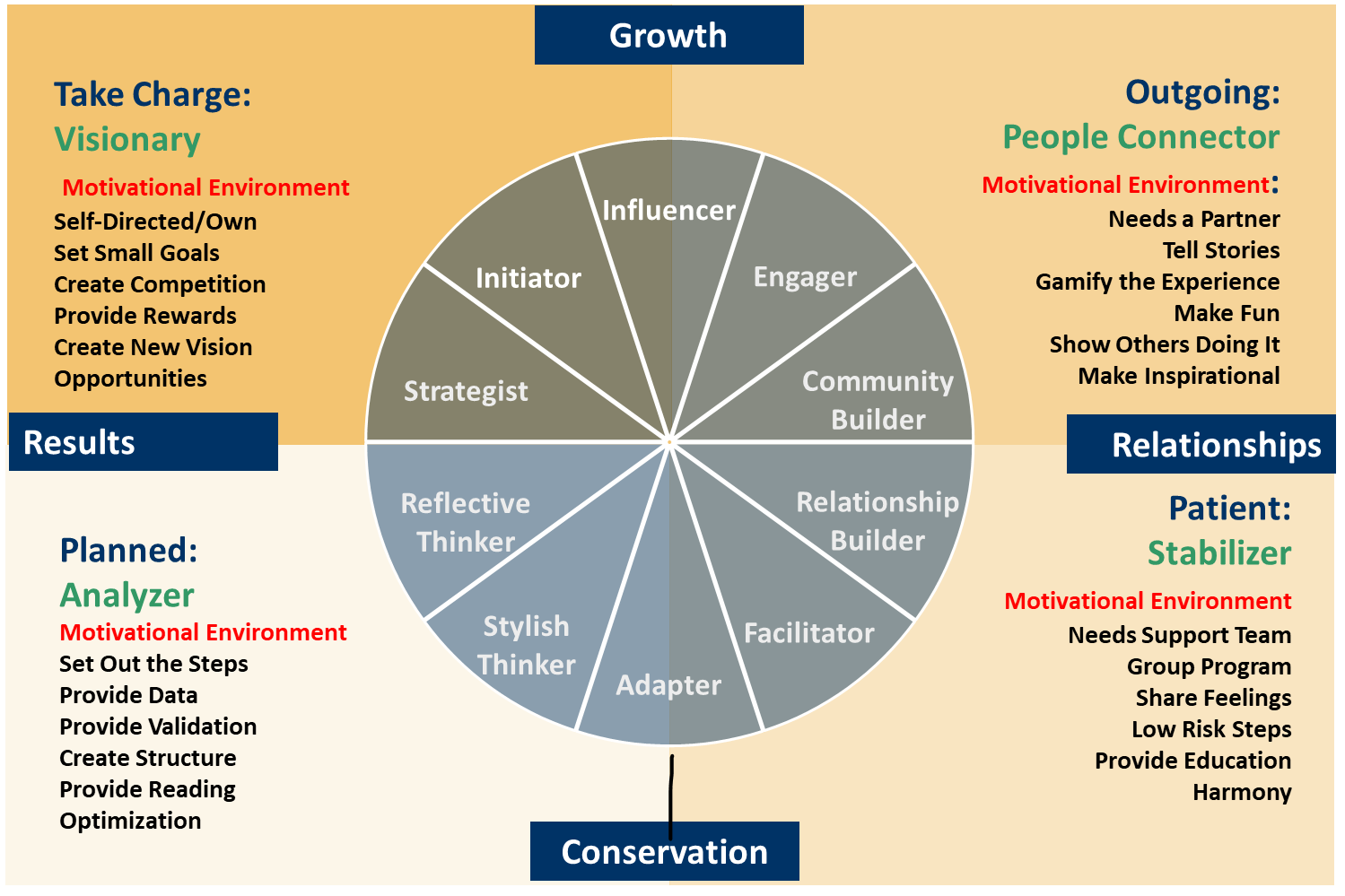Change Management for Different Behavioral Styles
This article applies to people interested in addressing change management through behavioral insight.
Common Questions:
- Why do some people resist change?
- How does understanding different behavioral styles address change?
- Do people respond differently to change in particular environments?
- What are the most effective ways to approach change management?
Solution Overview:
Change management is complex and needs a customized approach based on individuals' behavioral styles. Leaders, coaches, and advisors, and people making life changes must know these styles. Behavioral insights are key to developing tailored strategies that motivate and engage people.
Coaching for Behavioral Change:
When it comes to managing change effectively, it's crucial to take into account the unique needs and preferences of individuals. Understanding their behavioral styles and customizing coaching strategies can greatly enhance their engagement and motivation, leading to greater success in achieving a happy, successful, and healthy life. However, supporting behavioral change goes beyond just understanding individuals. It also involves creating an environment that fosters motivation and facilitates the change process.
The graphic below outlines the key elements of a motivational environment that should be considered when coaching behavioral change. It's important to recognize that not everyone responds well to traditional change presentations or sitting in a room for coaching sessions. Each person has different preferences and requires an environment that suits their individual needs. By understanding how to create a tailored behavioral environment for each individual, coaches can take a powerful first step toward effectively managing behavioral change.

Understanding individual preferences and behavioral styles is crucial for coaches when guiding clients through change. Some individuals may benefit from one-on-one coaching, while others prefer group settings or independent exploration. By recognizing that each person possesses a combination of behavioral traits, strengths, and limitations, coaches gain valuable insight into their clients.
This insight helps uncover unique personality traits, values, and motivations, enabling the development of tailored strategies to facilitate the desired behavioral changes.
Creating a motivational environment is vital for successful behavior change. It entails setting clear steps and achievable goals, supporting data and research, validating individuals' feelings, and offering structure and resources.
However, overcoming resistance to change requires addressing various influencers, and the DNA Behavior Discovery profile aids leaders, coaches and advisors in identifying behavioral patterns that hinder change, often rooted in individuals' sense of identity and purpose.
Lack of motivation, fear of failure, loss aversion, aimlessness, overwhelm, habits, avoidance, procrastination, lack of self-care, self-sabotage, and seeking comfort over growth are common causes of resistance. By addressing these factors, leader, coaches and advisors can guide clients toward embracing change and pursuing meaningful transformations.
On the other hand, a strong sense of identity and purpose is a powerful driving force for individuals. When people have clarity about their values and goals, they can make informed decisions and take actions aligned with their vision. This sense of purpose provides fulfillment and prevents individuals from feeling stuck or lost during change. Additionally, a clear sense of identity enhances motivation, propelling individuals to embrace change and pursue their goals with determination.
By understanding individual preferences, addressing resistance factors, and nurturing a motivational environment, leaders, coaches and advisors can support clients in navigating change and achieving personal growth.
Ultimately, change becomes an opportunity for individuals to discover their true potential and lead fulfilling lives.
![DNA-B-Primary_White (7).png]](https://kb.dnabehavior.com/hs-fs/hubfs/DNA-B-Primary_White%20(7).png?height=50&name=DNA-B-Primary_White%20(7).png)